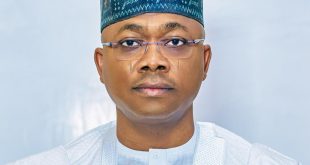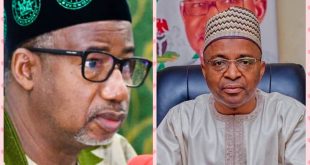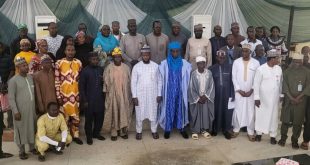By: Lamara Garba
On a Friday morning shrouded in solemnity, as Muslims across the world marked the sacred day of Eid-el-Adha—a time of faith, reflection, and sacrifice—death quietly arrived, uninvited but absolute. While worshippers raised their hands in prayer and sheep fell in symbolic surrender, Professor Abubakar Roko surrendered not by choice, but by fate. And in that moment, joy turned bitter for many. The day meant to celebrate the mercy of God became the day we questioned the mercy of our society.
Professor Roko is gone.
The news spread like wildfire through the Usmanu Danfodiyo University Sokoto (UDUS) campus. Staff sat in stunned silence. Students broke into tears. The air thickened with disbelief. The Eid celebrations were suddenly muted by a single, deafening truth: a good man had been taken too soon. And what’s worse, he was taken not by inevitability, but by negligence—by a system that watched him wither, whispered prayers, but offered no real protection.
He was a quiet man. Gentle in voice, humble in spirit, focused in purpose. Professor Roko was not one to clamor for attention or assert his status. He belonged to that vanishing generation of academics who considered teaching a sacred duty, not a means of survival. His classes were more than lectures—they were investments in the future. He saw his students not as obligations, but as promises. And he gave them his time, his intellect, and his kindness—without asking for anything in return.
In a touching tribute, the Head of the Department of Computer Science, Professor Abubakar Aminu Bui, spoke with both pride and grief. “He was exceptionally committed. Even when no student showed up for class, he would still be there. He would wait patiently in an empty lecture hall, and at the clock of time, he would quietly leave.” He described him as “a friend to all, and very hardworking”—a man whose absence feels like a void no one can quite fill.
Students echoed this with their own sorrowful testimonies. “We will never forget his humility, his kindness, his selflessness,” one said. “He treated us with a respect that made us want to become better people.” Others remembered how he continued to teach even while ill—organizing extra classes, reviewing assignments, and checking on their progress. He gave them his strength even when his own body was failing him.
But in the end, all of that heart wasn’t enough to save him.
It is the cruelest irony. Just weeks before his death, there had been a flicker of hope. His Excellency, Governor Abba Kabir Yusuf of Kano State, stepped in with a generous gesture—offering financial support to aid in his treatment. The Governor personally donated ₦5 million and directed the Kano State Commissioner of Health, Dr. Abubakar Labaran, to process an additional ₦5 million from the state coffers—bringing the total support to ₦10 million of the ₦13 million needed.
I personally called Professor Roko on the Wednesday night before his passing to greet him. He was full of hope and gratitude. He spoke excitedly about the support and expressed heartfelt prayers for Governor Yusuf. There was life in his voice again, faith rekindled by what he called a “lifeline.”
Grateful, Professor Roko had released a statement filled with optimism and faith. “I am looking forward to full recovery and to reciprocate this good gesture,” he said, with the quiet hope of a man who still believed in the future.
But the future he imagined never arrived.
Speaking through the Director General of Protocol, Hon. Abdullahi Ibrahim Rogo, Governor Abba Kabir Yusuf expressed deep sorrow over Professor Roko’s passing. He extended heartfelt condolences to the bereaved family, the UDUS community, and the entire academic fraternity. He prayed for Almighty Allah to grant the late Professor Jannatul Firdaus, and for the family to find the strength to bear this irreparable loss.
In a further show of compassion, the Governor has now instructed that the ₦5 million previously approved through the state’s Ministry of Health—but not yet disbursed before Professor Roko’s death—be released to his family. Although the Commissioner of Health is currently in Saudi Arabia, the directive stands: the fund, even though unused, must now serve as a posthumous gesture of respect and support to the family.
Still, we are left with grief—and with shame. Because the question will not go away: why did it take public appeals and donations to raise the money needed for a professor’s medical care? Why must an academic of his standing beg a nation he served for the bare minimum needed to survive?
The Academic Staff Union of Universities (ASUU), Sokoto Zone, did not mince words. In a heartfelt statement, the Zonal Coordinator, Professor Abubakar Sabo, lamented, “It is unfortunate that Professor Roko died this way.” He went further, saying his death should force a serious review of policies affecting tertiary education funding in Nigeria. “ASUU mourns the passing of this wonderful man who dedicated his life in service of this great country,” he said, “but who was abandoned to die while struggling to raise money for treatment.”
And mourn they did.
The crowd at his funeral was overwhelming. So many came—students, colleagues, neighbors, strangers—gathered not because they had to, but because they needed to. Because the void left behind by Professor Roko was too vast to ignore. The sheer number of sympathizers told its own story: a great man had indeed gone. One whose value was not written on titles, but etched in the hearts of those he touched.
We can no longer afford to dress up these tragedies in poetry alone. His passing is not just a personal loss—it is an indictment. It is the final line in a damning report card on how this country treats its thinkers, its educators, its quiet heroes. We build nothing without teachers. And yet, we allow them to crumble, in plain sight.
A professor should not die waiting for a bank transfer. A man who has trained generations of engineers and scientists should not have to rely on public donations to fight for his life. ₦13 million is a laughable amount to a Nigerian senator, yet it was the difference between hope and despair for a man who gave three decades of his life to building others.
Let us not pretend this is new. Let us not pretend this is okay. Let us stop crafting elaborate tributes for the dead while ignoring the living. The university system is not just underfunded—it is under attack. Poor pay, zero access to world-class research infrastructure, no healthcare safety net, and the ever-looming fear of illness with no financial cushion. What happened to Professor Roko is happening to others. We are watching in real time the slow erasure of Nigeria’s intellectual backbone.
He deserved more. They all do.
Professor Roko’s death is now part of a long, unending list of tragedies we’ve normalized. But it must not be forgotten. His story should be printed on every wall where decisions are made. His image should hover in the offices of policymakers who think budgets are just numbers on paper. His name should ring in the ears of every administrator who says “there is no money” while approving needless luxuries.
This is not just about healthcare. This is about dignity. About value. About national priorities. If a man who gave everything still had to go out with nothing, what does that say about us?
We weep not only for him, but for what we’ve become.
Still, in the end, we trust in a justice higher than ours. We hand over his soul to the care of the Most Merciful—trusting that the reward of a life so honestly lived can only be paradise. May Allah forgive his shortcomings. May He grant him Jannatul Firdausi. May He replace our sorrow with wisdom—and our silence with change.
Rest, Professor Abubakar Roko. Rest, noble scholar. You showed up, even when no one did. You gave, even when you had little. You served, even when it cost you everything.
You were a light in a place too dark.
And now, your absence is the silence of a bell that will never ring again.
Lamara Garba is the Director, Public Affairs, Bayero University, Kano.
 THESHIELD Garkuwa
THESHIELD Garkuwa




